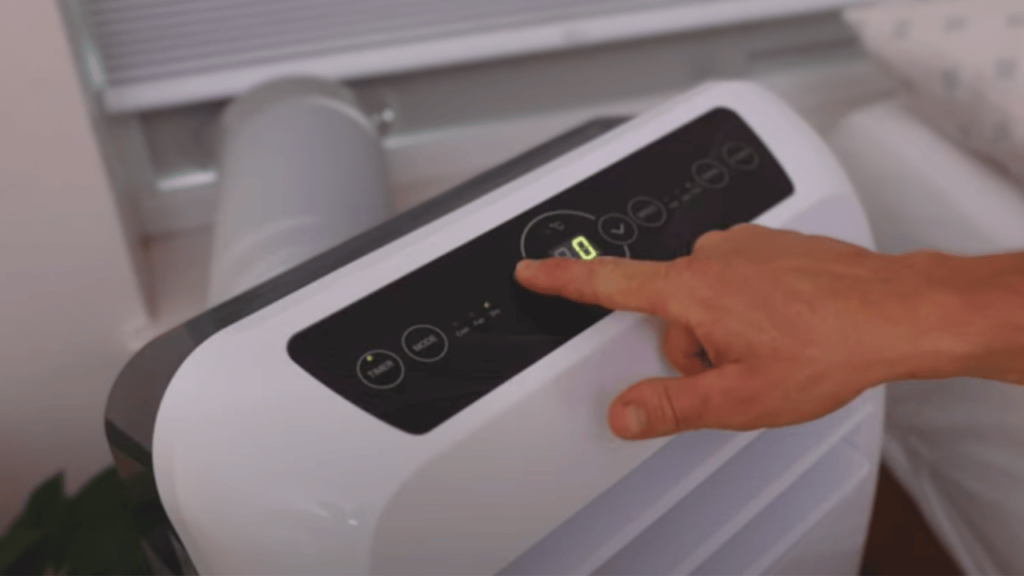Portable air conditioners have become a popular choice for those looking for a flexible and convenient cooling solution. However, questions often arise about their maintenance, and one common inquiry is whether portable AC units need to be re-gassed. This is an important question, as understanding how the system works can help you better maintain your unit and ensure its optimal performance over time.
Let’s break down everything you need to know about the possibility of re-gassing a portable air conditioner.

Understanding How a Portable Air Conditioner Works
To know if your portable AC needs to be re-gassed, it’s essential to first understand how these systems work. Like traditional air conditioners, portable AC units use a refrigerant gas to cool the air. The refrigerant absorbs heat from the air inside your home, cools it, and then expels the heat outside through an exhaust hose. The cooling process relies on this refrigerant circulating within a closed system.
Because the refrigerant operates within a sealed loop, portable air conditioners do not typically need to be re-gassed under normal circumstances. The refrigerant is not used up during operation; it simply moves through the system, undergoing phase changes from liquid to gas and back again, without escaping. This means that, unlike a car’s air conditioner that might need a refrigerant refill every few years, a portable AC does not lose refrigerant unless there’s a leak.
When Might a Portable AC Need to Be Re-Gassed?
Although portable air conditioners are designed to be low-maintenance, there are rare instances where re-gassing could be necessary. The most common reason for a refrigerant loss is a leak in the system. Here are some factors that can lead to refrigerant loss:
- Leaks in the coils or connections: Over time, the coils or joints within the AC unit can develop small cracks or holes due to wear and tear, resulting in refrigerant escaping.
- Damage during handling: If the unit is moved frequently or stored improperly, it may experience damage to its internal components, which could lead to refrigerant leakage.
- Manufacturing defects: Though rare, some units may have defects from the factory that result in a slow refrigerant leak over time.
If a leak occurs, your unit’s cooling performance will likely be compromised, and you may need to have it inspected by a professional technician. Simply adding more refrigerant without addressing the root cause (the leak) will not fix the problem in the long run.
Signs Your Portable AC Might Have a Refrigerant Issue
If your portable AC is not cooling as effectively as it once did, you might assume it needs to be re-gassed. However, it’s important to consider other factors first, such as cleaning the filters or ensuring there are no blockages in the exhaust hose. Still, if your unit is properly maintained and is showing the following signs, it could indicate a refrigerant leak:
- Poor cooling performance: If your AC used to cool the room efficiently but now struggles to reach the desired temperature, a refrigerant issue could be to blame.
- Longer running cycles: If the unit runs for extended periods without cooling the room effectively, this could be a sign of low refrigerant.
- Unusual sounds: Hissing or bubbling noises coming from the unit may indicate that refrigerant is leaking.
- Frost on the coils: If there is frost or ice buildup on the evaporator coils, this could be a symptom of low refrigerant, as the system is no longer able to properly absorb heat.

Can a Portable AC Be Re-Gassed?
While it’s technically possible to re-gas a portable air conditioner, it’s not always practical or recommended. Most portable AC units are designed with sealed refrigerant systems that aren’t intended to be refilled. If your unit does experience a refrigerant leak, the cost of repairs and re-gassing may be higher than simply purchasing a new unit, especially for lower-cost models.
However, for higher-end or larger models, a professional HVAC technician can sometimes re-gas the unit after fixing any leaks. This process involves locating the leak, repairing or replacing the faulty component, and then recharging the system with the correct amount of refrigerant. It’s important to note that handling refrigerant is not a DIY task, as it requires specialized tools and knowledge.
Regular Maintenance to Avoid Issues
To prevent refrigerant leaks and ensure your portable air conditioner operates efficiently for as long as possible, regular maintenance is key. Here are some maintenance tips to keep in mind:
- Clean or replace filters regularly: Dirty filters can impede airflow, causing the unit to overwork and potentially damage components over time.
- Check the exhaust hose: Ensure there are no obstructions or kinks in the exhaust hose, as this could lead to overheating and strain on the unit.
- Store the unit properly: During the off-season, make sure to store your portable AC in a safe, dry place where it won’t get damaged. Avoid placing heavy objects on the unit that could cause damage to internal parts.
Final Thoughts
In conclusion, portable air conditioners generally do not need to be re-gassed, as they are designed to operate within a sealed system. However, if you notice a decline in cooling performance and suspect a refrigerant leak, it’s essential to have the unit inspected by a professional. Addressing any leaks promptly can help you avoid further damage, but in many cases, replacing the unit may be more cost-effective than re-gassing it.
By maintaining your portable AC and being aware of the signs of potential refrigerant issues, you can enjoy efficient cooling without the need for frequent maintenance or costly repairs.

Leave a Reply